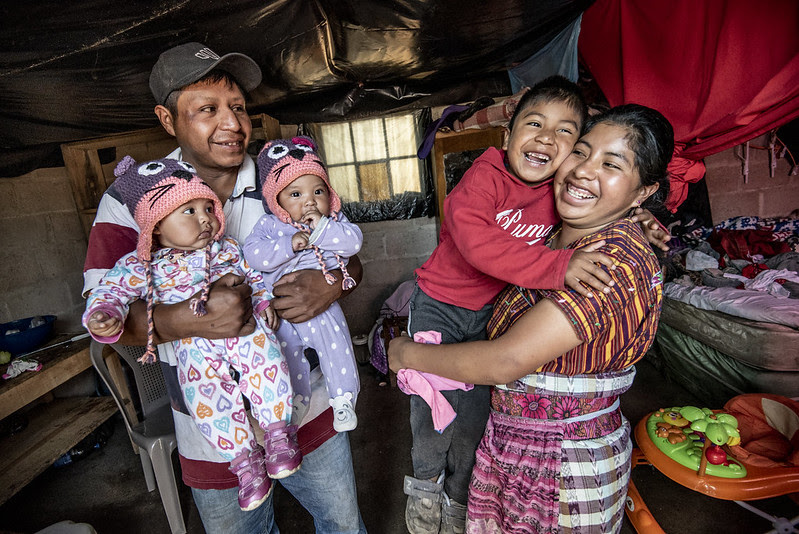
GREETINGS from the TASK FORCE SECRETARIAT
Dear Friends,
I am pleased to share our second issue of the Task Force newsletter. In this issue, we recap the successful CSA launch, provide a preview of the Task Force's upcoming conference, share a new resource in the School Health and Nutrition Hub, and give subgroup updates. We've had a busy quarter and are excited to meet most of you next week at our first virtual conference — if you have not reserved your spot yet, you can register here before you continue, as we need you to join the conversation on how we will enable all children to survive and thrive through the lifecourse.
Sincerely,
Dyness Kasungami, Director of the Child Health Task Force
CSA INITIATIVE’S OFFICIAL LAUNCH
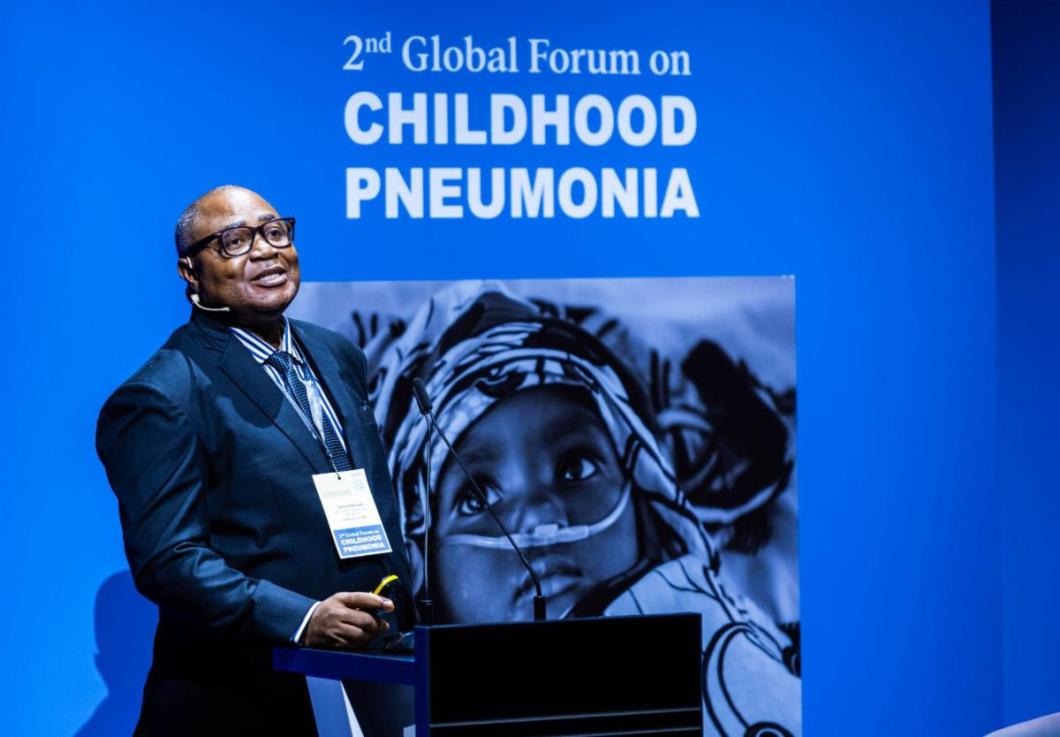
n collaboration with the Ministry of Health and Sanitation, Sierra Leone (MOH), the Task Force and its partners, Global Financing Facility, Save the Children International, USAID, UNICEF, and World Health Organization, were delighted to launch the Child Survival Action (CSA) Initiative at the 2nd Global Forum on Childhood Pneumonia. Dr. Sartie Kenneh, Chief Medical Officer of the MOH, Sierra Leone shared the country's CSA plan that was launched in April 2023.
The CSA is a renewed call to all partners—national governments, civic and traditional leaders, communities, and regional and global stakeholders—to end preventable child deaths. It seizes the opportunity to align across the life course continuum and complementary efforts that strengthen Primary Health Care, inclusive of community health, disease- and topic-specific initiatives – for a common agenda. And in order to be successful, it will require a country-driven agenda with political leadership and accountability and alignment of all partners in support of government-led priorities. Learn more about the initiative in the new two-pager.
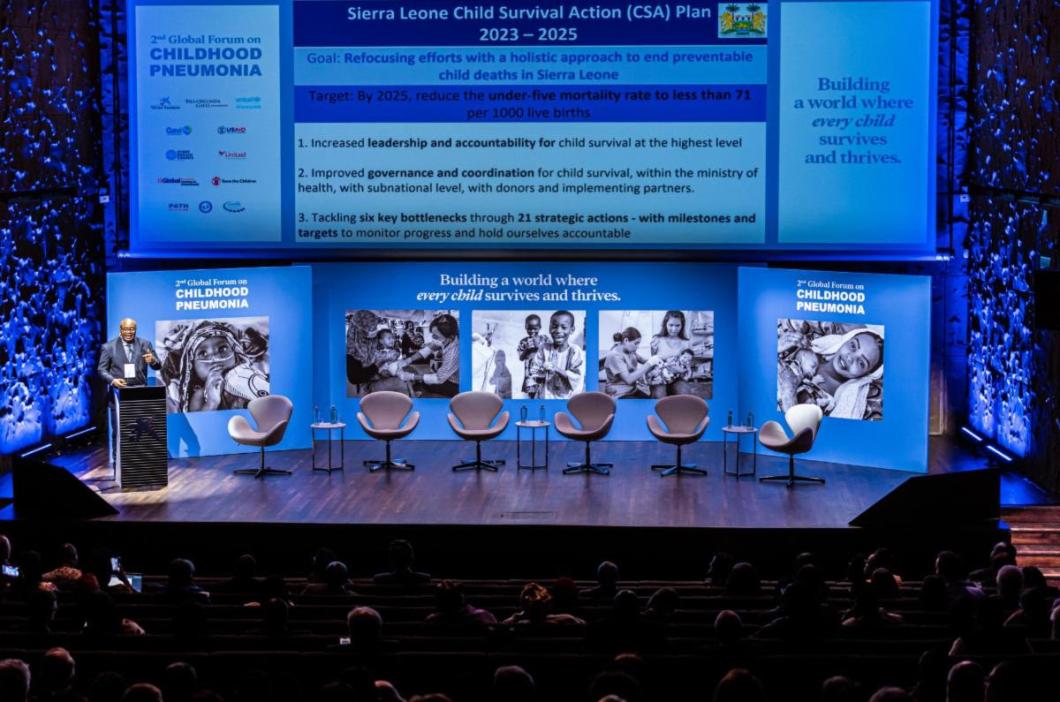
TASK FORCE'S VIRTUAL CONFERENCE ON JUNE 6 & 7
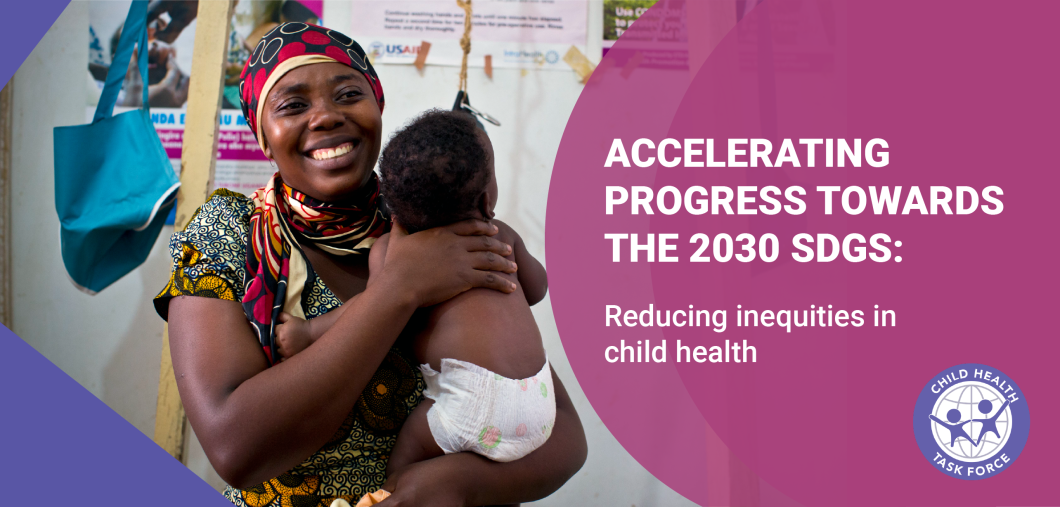
The Task Force is pleased to organize its first virtual conference to unite child health partners around how we might address inequities to enable children, especially the marginalized, to survive and thrive throughout the lifecourse. Members will join sessions and discussions that highlight and share learnings and innovative solutions to overcoming inequities across countries and community contexts, organized under three thematic tracks (see below). The event will also provide an opportunity for participants to network through virtual chat rooms and build their capacity through skills-oriented sessions.
Opening Plenary
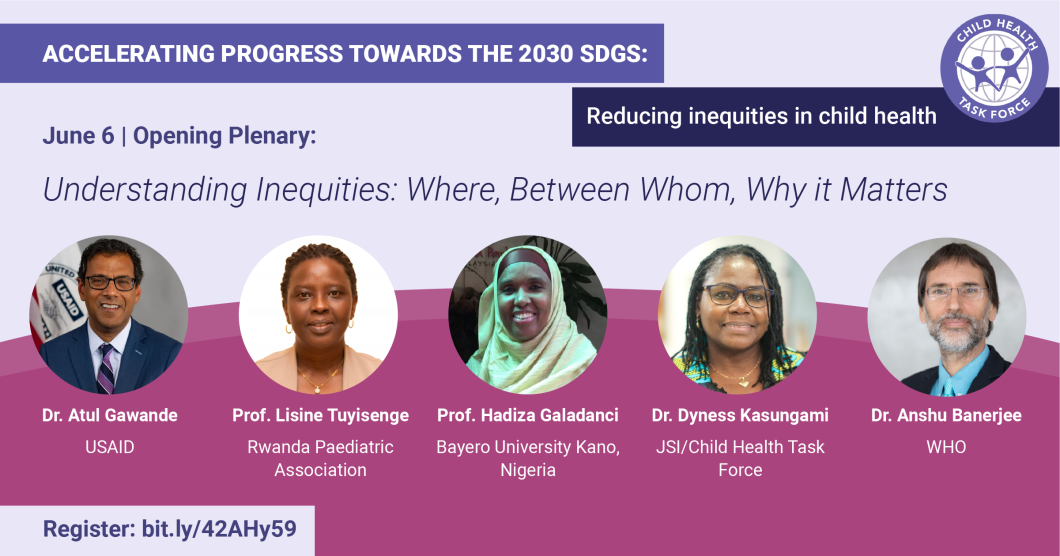
The opening plenary, Understanding Inequities: Where, between Whom, Why it Matters, will set the stage and tone for the entire conference. It will feature Keynote Speaker, Dr. Atul Gawande, Assistant Administrator for Global Health, USAID; remarks from Dr. Anshu Banerjee, Director for the Department of Maternal, Newborn, Child and Adolescent Health and Ageing at WHO; and panelists Professor Lisine Tuyisenge, Rwanda Paediatric Association and Professor and Director Hadiza Galadanci, Aminu Kano Teaching Hospital, Africa Center of Excellence for Population Health and Policy, Bayero University Kano, Nigeria.
Key Takeaways:
- Donors are supportive of moving away from disease-focused programs and toward integrated service delivery that can support and tackle multiple causes of child mortality;
- Sierra Leone has plans and mechanisms in place to address many of the bottlenecks that affect the reduction of under-five mortality, and as CSA partners, we can look to find ways where we can support the country so that it can deepen, intensify, and scale these efforts.
Track 1: Defining & Identifying Inequity
Children born in sub-Saharan Africa are 12 times more likely to die before their fifth birthday than children in high-income countries, a statistic that has barely changed over the past 30 years. We know these inequities exist, but in order to address them, we need to define, understand and identify children who are affected, including those in humanitarian contexts, crisis and fragile settings, urban slums, rural areas, caste, and ethnic or religious minorities, etc.
The conference will feature the following sessions:
- Understanding and Addressing Inequities in Nutrition and Feeding for Children with Disabilities: Overview and case studies
- Using Human Centered Design and Co-creation Approaches to Uncover the Causes of Immunization Inequity with Caregivers, Community Members, and Health Workers
- Exploring the Effectiveness of Nurturing Care Interventions by CHWs in Improving Child Health Outcomes in Rural Kenya: A Study of Seme Sub County, Kisumu County
Track 2: Addressing Inequities through Strengthening PHC
Despite intractable implementation challenges and limited funding, some countries have made tremendous progress in improving health outcomes. These countries have strengthened the critical elements of the PHC systems as an inclusive health system.
The conference will feature the following sessions:
- Bite-sized Counseling Responds to Providers’ Practical Constraints and Motivates Caregiver Follow-through
- Sustainable Financing as a Critical Component to Reduce Child Health Inequities in LMICs: A focus on childhood pneumonia
- Scaling up Integrated Management of Newborn and Childhood Illnesses (IMNCI) Strategy in Uganda
Track 3: Measuring Inequities, Monitoring & Tracking Progress
A major challenge has been establishing sustainable, quality mechanisms for measuring inequities and tracking progress.
The conference will feature the following sessions:
- Improving Frontline Pharmacy Accountability for Child Health Services through Community Information Systems
- Health Situation of Children Living in Humanitarian Settings: A call to action
- Child Survival Action: A results framework for advocacy and action
Skills Building Sessions
The conference will feature the following sessions:
- Writing a Successful Grant Application for your Community Based Organization
- Community Health Planning and Costing Tool (CHPCT)
Closing Plenary
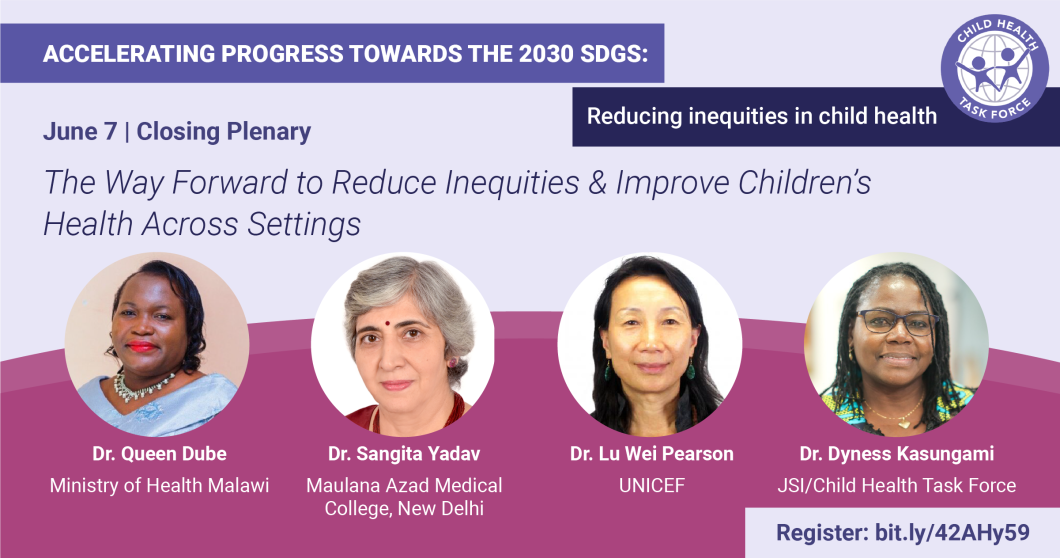
The Way Forward to Reduce Inequities and Improve Children’s Health Across Settings, will focus on reflection and call to action. It will feature Dr. Queen Dube, PhD, Chief of Health Services, Ministry of Health Malawi; Dr. Sangita Yadav, Professor, HIMSR and HAHC, Maulana Azad Medical College, New Delhi; and Dr. Lu Wei Pearson, Associate Director of Maternal and Newborn Child Health, UNICEF. This Plenary will challenge child health partners to utilize the Task Force platform as a mechanism to share homegrown transformational stories that became possible because of the re-commitment to ending preventable child deaths.
NEW RESOURCE ADDED TO THE SCHOOL HEALTH & NUTRITION MICROLEARNING TOOLKIT
The Task Force developed a new infographic for its SHN microlearing toolkit that explores the importance of comprehensive sexual education (CSE) for school-aged children. The tool examines CSE's benefits and the potential entry points for health and education sectors to support it. This resource is intended for USAID Mission staff, including health and education officers, as well as implementing partners, ministries of health and education, donors, and school administrators for consideration during program planning and co-investing. You can view the full infographic here.
SUBGROUP UPDATES
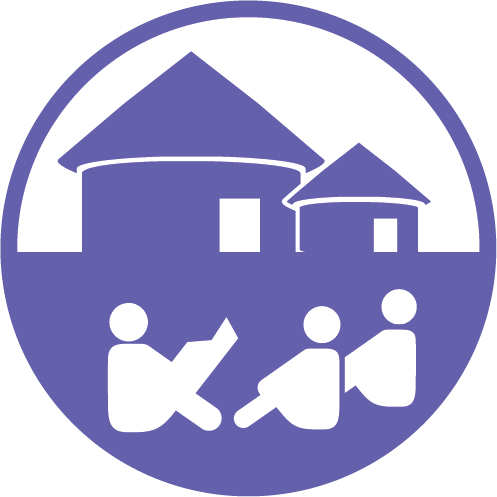
- The subgroup is collaborating with the iCCM Task Team to support countries to strengthen the child health and systems components of their Global Fund proposals, including the incorporation of non-malaria commodities for child survival (resources for countries on the website). The Advisory Group has also continued to provide inputs on the final script for the institutionalizing iCCM toolkit which will be published soon.

- The subgroup is continuing to lead the development of the CSA results framework and has identified key indicators for child survival; the group will support countries to identify relevant milestones to achieve their child health targets.
![]() Newborn and Child Health Commodities
Newborn and Child Health Commodities
- The call to action paper on improving access of amoxicillin and gentamicin was finalized and published. The subgroup members collaborated with USAID, UNICEF and other partners through a consultative series to provide data on the key bottlenecks and provide feedback on the final product.
![]()
- The Quality of Care subgroup co-hosted the launch of the updated Nurturing Care Handbook and Practice Guide with the WHO and UNICEF in collaboration with the Network for Improving Quality of Care for Maternal, Newborn, and Child Health, and the Early Childhood Development Action Network. The webinar took place in English, French and Spanish, recording and presentation in all languages available on the website.
![]()
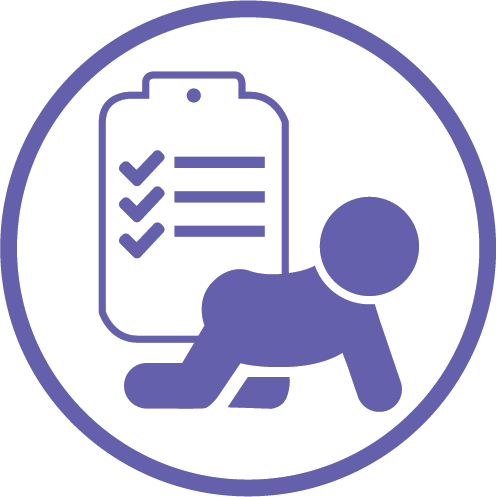
Re-imagining the Package of Care for Children
- The subgroup held two more sessions in their climate series co-hosted with UNICEF and Global Communities; the first focused on interventions for protecting women and children from heat stress in March and the second on malaria transmission and programming in May. Recordings, presentations, and resources from the series available on the website. The next session, focusing on the climate effects on arbovirus transmission in children, will take place on Thursday, June 15 at 9am ET.
Join individual subgroup mailing lists by completing this brief online form.

UPCOMING EVENTS
Task Force Events
- June 6 & 7, 8:00 AM- 12:00 PM EDT [GMT-5], online | Accelerating Progress Towards the 2030 SDGs—Reducing Inequities in Child Health | The Task Force will host its first virtual conference. See details on the sessions above.
- June 15, 2023, online | Adapting Health Systems to Protect Children from the Impact of Climate Change Series—Arboviruses | The Re-imagining the Package of Care for Children subgroup and UNICEF will continue its climate change series into the summer. Details and invitations are forthcoming.
Partner Events
- June 5-30, 2023, online and onsite | Johns Hopkins’ Global Health Systems Summer Institute | The institute provides early- and mid-career public health professionals with cutting-edge skills in a variety of global health topics.
- June 13-15, 2023, Bangkok Thailand | VACCINATION ACCEPTANCE RESEARCH NETWORK (VARN) 2023 | VARN will host its second annual conference with UNICEF and Gavi, the Vaccine Alliance. Sessions will explore and facilitate the wide dissemination of a growing body of knowledge, practice, and evidence-informed strategies for driving action across the vaccination acceptance, demand and delivery ecosystem.
- July 17-20, 2023, Kigali, Rwanda | Women Deliver 2023 Conference | WD2023 will enable inclusive and co-created spaces that foster solidarity for sustainable solutions on gender equality.

NEWS FROM THE NETWORK
- Report: Ahlan Simsim as a model for strengthening nurturing care through national health systems | International Rescue Committee and Sesame Workshop
- Technical Brief: How has Human-Centered Design Contributed to Youth Engagement in Adolescent Sexual and Reproductive Health Programming? | HCDExchange
- Report: Kangaroo mother care - Implementation strategy for scale-up adaptable to different country contexts | WHO
- Guidance: Strengthening implementation of home-based records for maternal, newborn and child health: a guide for country programme managers | WHO
- Brief: Oxygen financing: Global Fund opportunities | PATH
